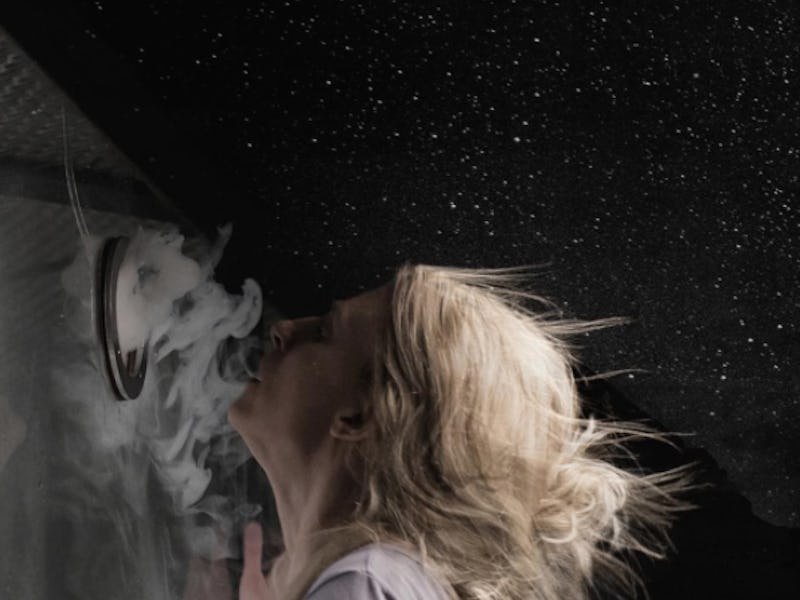Netflix's Creepy Thriller 'The OA' Is Probably One Long, 7-Year Memory Fever Dream

On Monday, Netflix’s Twitter account took a real dark turn, with a spate of disturbing tweets paired with an 8-second shot of a woman zigzagging through traffic before leaping off a bridge.
By Monday afternoon, the cryptic tweets were explained with the surprise announcement that Netflix would be dropping a supernatural thriller, The OA, on Friday.
The story revolves around a girl — played by actress and writer Brit Marling — who disappeared seven years prior and returns not only cured of her blindness but also toting memories of an alternate, parallel universe.
While the series is stoking curiosity, it’s also brimming with confusing sequences that Netflix’s newly launched Instagram page for the site seem to indicate are actually dream sequences. But here’s a theory: The main character — who oscillates between fear and confusion — somehow sidestepped our dimension for seven years and was hanging out in a parallel universe.
That, it turns out, isn’t as bizarre a theory as one might assume: Psychologists have termed the phenomena of people remembering lives in an alternate universe as the Mandela Effect. It’s a combined product of internet culture, conspiracy theories, and nostalgia that has fueled a movement questioning the very truthiness of childhood artifacts, causing speculation that we now live in a parallel universe.
The phenomena is named after the former South African president Nelson Mandela, who many people firmly believed had died in the 1980s while imprisoned and whose death in 2013 sparked speculation that Mandela’s “death” in the 1980s occurred in a separate dimension. The founder of mandelaeffect.com found that after she launched her conspiracy theory, others emerged — the Berenstein Bears were actually the BerenstAin Bears, the famous lone protestor of Tiananmen Square was run over by the tank that he faced (there is no evidence either way), that La-Z-Boy was actually Lay-Z-Boy. Believers are convinced these sudden slips are actually a sign that we are living in an alternate reality, a parallel dimension.
Psychologists think what’s actually going on is confabulation, the idea that we sometimes misremember things so strongly that we accept those false memories as truth. Psychologists classify these memories as paramnesia, or instances where our brain fills in holes with made-up details to complete our image of the experience to the point of complete fabrication. It explains why the instances described above as real are related to things that are commonplace, otherwise ordinary images.
Confabulation can also occur due to a traumatic event, as the “memory hacker” Julia Shaw stated in a Reddit AMA. “When we experience brain trauma we sometimes lose, temporarily or permanently, the ability to access coherent memories,” she said. “This impacts our ability create a sense of a consistent life story, and what we seem to do to compensate is to make things up — we confabulate.”
So perhaps what the main character in The OA is actually going through is a seven-year confabulation. Either way, it doesn’t completely contradict our conception of multiverse theory.